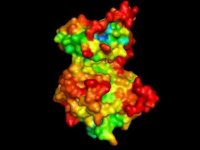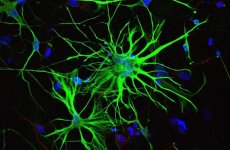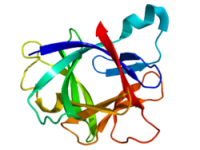ruby sparks
Contributor
This thread is a split-off from the thread on 'Eliminating Qualia' and the following is an elaboration on what I said there before starting this one.
I'm going to sum up where I got to, personally, as a result of participating in that thread, and reading around the topic.
1. Qualia exist.
2. Qualia are basically, sensations. This is shorthand for 'conscious sensations'.
3. All of what we call consciousness, including self, belief, thoughts, reasoning, emotions, etc, consist, essentially, of sensations.
4. Sensations (aka qualia) and consequently all the above, probably arise out of brain processes, specifically, they probably arise out of non-conscious brain processes.
5. Consciousness is thus, 'one of the things brains can do' (in certain situations).
6. In other words, we are talking about mechanisms. Those are the appropriate models, and reduction is key.
7. Consciousness is a biological phenomenon and has evolved. It is therefore amenable to biological and evolutionary mechanism modelling.
8. There is probably causation from what we call the mental to the physical. This carries within it the implication that qualia are causal in some way.
9. We do not (yet) know how it happens, how consciousness arises, or how it interacts (if it does) with the brain, or functions in the brain it is part of.
10. Despite us not (yet) understanding what consciousness is or how it arises or functions, the study of it is amenable to science (ie applied philosophy) nonetheless.
11. Science is probably going to add more to our knowledge going forward than theoretical philosophy, though the latter will still play a useful role.
On the back of that list, for which each item could be prefaced by 'in my opinion', I'm going to suggest an amateur hypothesis which some of the various things said in the 'Eliminating Qualia' thread have prompted me to be curious about. I haven't looked into it (the evidence for or against the hypothesis) yet, though I hope to, and I don't mind being shot down in the meantime. The hypothesis is that qualia (in their complex combinations up to and including self-consciousness) reinforce memory.
I will offer a small illustration.
Pain (qualia) involves consciousness.
So, for example, according to the hypothesis, because you feel pain when you touch the flames, a stronger memory (or memory pathway) is laid down than if you didn't feel any pain. Similarly, because it hurt when the dog bit you, you will remember it and not put your finger in its mouth next time. In this sense, pain is effectively an alarm bell, and a lesson, and in that sense, a potential aid to survival. As such, once it first gradually emerged, we might expect it to be selected for.
Possibly ditto for pleasure.
I am guessing that a similar argument could be made for other 'basic qualia' such as sight, colour and taste, etc, and I am going to put my neck on the block and say that a case could hypothetically be built up from there to cover more complex arrangements of sensations, including thoughts, beliefs and self.
The key therefore, I'm suggesting, is memory.
I'm not also ruling out that 'reacting quicker' may be another outcome, in certain instances. Though I can already think of situations when non-conscious processes would be quicker, so I'm already sceptical. So on second thoughts I'm going to set that aside. 'Reacting (or predicting) better' (in certain situations, such as when forward planning or deliberating) might be more promising, and memory may come into play in that process/capacity.
I'm hoping that this is in principle a testable hypothesis and I am now (or soon) going to try to google something relevant (perhaps on pain and memory to start with). I'm well aware that my hypothesis might get shot down by the first neuroscientific paper I come across.
I should arguably have done that googling before starting the thread, but, sure, what the heck. I'm hoping it will be interesting, fun and rewarding, even if I'm wrong.
I'm going to sum up where I got to, personally, as a result of participating in that thread, and reading around the topic.
1. Qualia exist.
2. Qualia are basically, sensations. This is shorthand for 'conscious sensations'.
3. All of what we call consciousness, including self, belief, thoughts, reasoning, emotions, etc, consist, essentially, of sensations.
4. Sensations (aka qualia) and consequently all the above, probably arise out of brain processes, specifically, they probably arise out of non-conscious brain processes.
5. Consciousness is thus, 'one of the things brains can do' (in certain situations).
6. In other words, we are talking about mechanisms. Those are the appropriate models, and reduction is key.
7. Consciousness is a biological phenomenon and has evolved. It is therefore amenable to biological and evolutionary mechanism modelling.
8. There is probably causation from what we call the mental to the physical. This carries within it the implication that qualia are causal in some way.
9. We do not (yet) know how it happens, how consciousness arises, or how it interacts (if it does) with the brain, or functions in the brain it is part of.
10. Despite us not (yet) understanding what consciousness is or how it arises or functions, the study of it is amenable to science (ie applied philosophy) nonetheless.
11. Science is probably going to add more to our knowledge going forward than theoretical philosophy, though the latter will still play a useful role.
On the back of that list, for which each item could be prefaced by 'in my opinion', I'm going to suggest an amateur hypothesis which some of the various things said in the 'Eliminating Qualia' thread have prompted me to be curious about. I haven't looked into it (the evidence for or against the hypothesis) yet, though I hope to, and I don't mind being shot down in the meantime. The hypothesis is that qualia (in their complex combinations up to and including self-consciousness) reinforce memory.
I will offer a small illustration.
Pain (qualia) involves consciousness.
So, for example, according to the hypothesis, because you feel pain when you touch the flames, a stronger memory (or memory pathway) is laid down than if you didn't feel any pain. Similarly, because it hurt when the dog bit you, you will remember it and not put your finger in its mouth next time. In this sense, pain is effectively an alarm bell, and a lesson, and in that sense, a potential aid to survival. As such, once it first gradually emerged, we might expect it to be selected for.
Possibly ditto for pleasure.
I am guessing that a similar argument could be made for other 'basic qualia' such as sight, colour and taste, etc, and I am going to put my neck on the block and say that a case could hypothetically be built up from there to cover more complex arrangements of sensations, including thoughts, beliefs and self.
The key therefore, I'm suggesting, is memory.
I'm not also ruling out that 'reacting quicker' may be another outcome, in certain instances. Though I can already think of situations when non-conscious processes would be quicker, so I'm already sceptical. So on second thoughts I'm going to set that aside. 'Reacting (or predicting) better' (in certain situations, such as when forward planning or deliberating) might be more promising, and memory may come into play in that process/capacity.
I'm hoping that this is in principle a testable hypothesis and I am now (or soon) going to try to google something relevant (perhaps on pain and memory to start with). I'm well aware that my hypothesis might get shot down by the first neuroscientific paper I come across.
I should arguably have done that googling before starting the thread, but, sure, what the heck. I'm hoping it will be interesting, fun and rewarding, even if I'm wrong.
Last edited:




